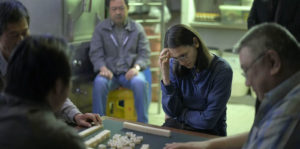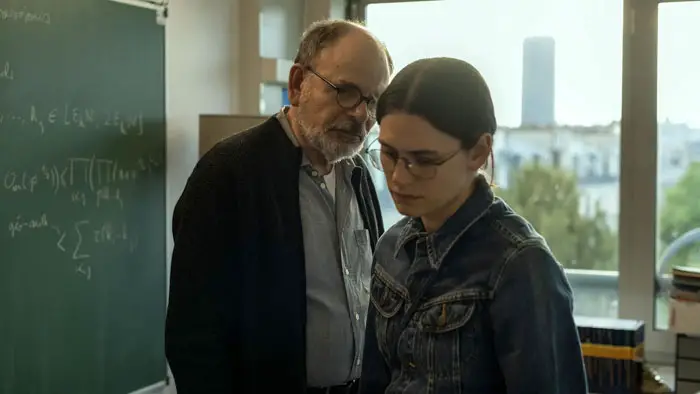
Marguerite’s Theorem (Le Théorème de Marguerite) by French director Anna Novion stars Ella Rumpf as Marguerite, a brilliant mathematics student at France’s top university working on solving Goldbach’s conjecture for her thesis. The film premiered at the 2023 Cannes Film Festival, where its production designer Anne-Sophie Delseries won the CST Young Film Technician Award as it really immersed us in the world of a tormented genius who sees math everywhere while going through a period of doubt and coming-of-age of sorts. Anna Novion answered a few of our questions about the movie and this one-of-a-kind story about a rare female mathematics Ph.D. struggling to pay rent in Paris.
What inspired you to make this movie or tell this story?
Anna Novion: When I start a film, I always begin with a feeling, an emotion. I thought about a feeling of imprisonment and dislocation that I experienced when I was about 20 years old. I’d been ill and had to stay at home for six months. When I recovered, I felt very out of touch with the world, with young people of my age, with their carefree attitude. When I tried to convey what I had felt, I thought of the Ivy League schools where young people work in a vacuum and are cut off from the outside world. That’s how I met mathematicians and had an Instrumental meeting with Ariane Mézard, a great French mathematician.

“When I start a film, I always begin with a feeling, an emotion.”
This meeting completely guided the writing of the film and took it to a place I hadn’t expected. The way she talked about her job triggered something in me because she talked about everything that drives me in my job: the passion, the necessity, the difficulty, the tenacity, the relentlessness… I realized that there was a real parallel to be drawn between mathematics and artistic creation. What links mathematics and filmmaking is the risk and passion that means we’re sometimes prepared to work for years without knowing whether our work will come to an end. It became a very personal film that evoked my relationship with creation.
Did you always have a woman mathematician in mind for the protagonist, or is Marguerite based on a real person?
I think Marguerite is a blend of Ariane Mézard and myself. Ariane Mézard’s stories inspired me a lot. She was the best and only girl in her class. I also wanted to tell the story of what it’s like to be a woman in a masculine environment. Even in my profession, I’ve felt the pressure of feeling like you are the exception and you have to prove that you belong. So, Marguerite sees herself as a kind of anomaly, and she feels this competition all the more because she’s the only woman.


[…] Source link […]
[…] Source link […]